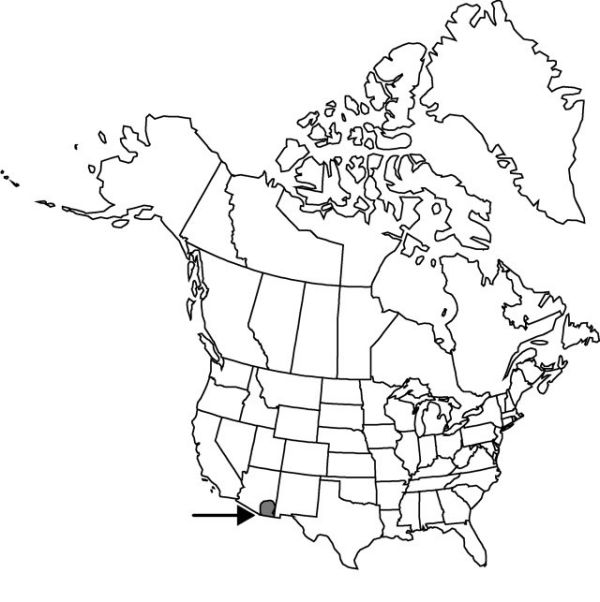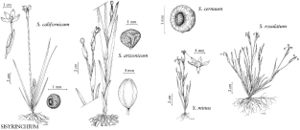Sisyrinchium cernuum
Leafl. W. Bot. 5: 197. 1949.
Herbs, annual, cespitose, medium olive when dry, to 2 dm, not glaucous. Stems simple, 0.5–2 mm wide, glabrous, margins entire to denticulate apically, similar in color and texture to stem body. Leaf blades glabrous, bases not persistent in fibrous tufts. Inflorescences borne singly; spathes green, glabrous, keels entire; outer 14–41 mm, 5–12 mm longer than inner, tapering evenly towards apex, margins basally connate 3.3–5 mm; inner with keel evenly curved to straight, hyaline margins 0.1–0.5 mm wide, apex acute to rounded, ending 0–1.1 mm proximal to green apex. Flowers: tepals yellow to orange, usually with brownish veins; outer tepals 2.6–5 mm, apex acute to rounded; filaments connate basally, glabrous; ovary similar in color to foliage. Capsules light to dark brown, globose, 3–8 mm; pedicel recurved. Seeds hemispherical, with deep depression on flattened side, 0.9–1.1 mm, rugulose.
Phenology: Flowering early spring–late summer.
Habitat: Moist areas, meadows, stream banks, woods
Elevation: 1000–2400 m
Distribution

Ariz., Mexico (Chihuahua, Durango).
Discussion
Selected References
None.
